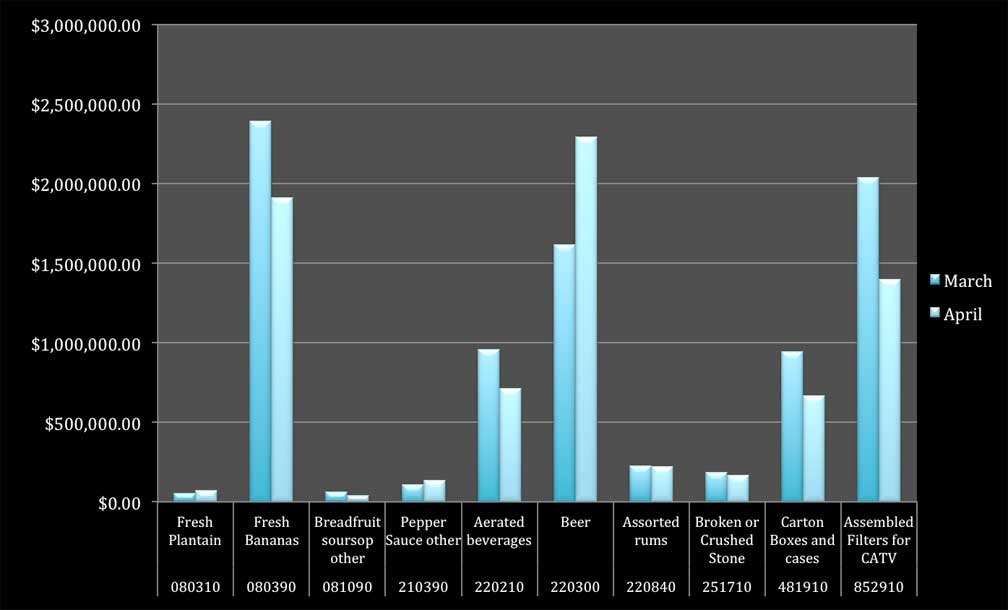
TEPA Newsletter – April 2016
[column size=”one-half”]
TEPA Hosts Export Pop-up Shop
Deeply rooted by our vision to spearhead export development with innovation, efficiency and integrity, in order to create and expand export markets for Saint Lucian goods and services; the Trade Export Promotion Agency (TEPA) was excited to host a 3-day Export Pop-Up Shop last month, at the STEP Caribbean Conference 2016 (CC16)… Read More…[/column]
[column size=”one-half” last=”true”]
Saint Lucia Flavours Social Media Campaign
A multi-platform social media campaign highlighting the signature foods and flavors of Saint Lucia is currently engaging consumers across the U.S in an effort to promote the products and commodities native to this eastern Caribbean nation. Tapping into the extensive reach, immediate delivery and response mechanisms… Read More…[/column]
Regional/International News
MOU Signed Between Caribbean Export and the Latin Chamber of Commerce

TThe Caribbean Export Development Agency signed a memorandum of understanding (MOU) with the Latin Chamber of Commerce of the USA. The agreement forms the basis for the strengthening of investment and trade promotion and facilitation and develop reciprocal cooperation between the US based entities and the member states of Caribbean Export which includes CARIFORUM countries.
[column size=”one-half”]
ASK Anthony

Rules of Origin in Trade
Q. What is meant by “Rules of Origin” in Trade?
A. “Rules of origin” are the criteria used to define where a product was made. They are an essential part of trade rules because a number of policies discriminate between exporting countries: quotas, preferential tariffs, anti-dumping actions, countervailing duty (charged to counter export subsidies), and more. Rules of origin are also used to compile trade statistics, and for “made in …” labels that are attached to products. This is complicated by globalization and the way a product can be processed in several countries before it is ready for the market.
Source: World Trade Organisation (WTO) website: www.wto.org
[/column]
[column size=”one-half” last=”true”]
Did You Know?
Did you know that Rules of origin are divided into two categories?
- Rules relating to preferential treatment
(i.e. Preferential Rules of Origin set administrative and local processing requirements that enable goods and materials to obtain preferential access to the market of a given trade partner)
- Rules relating to non-preferential treatment
(i.e. The agreement will cover only rules of origin used in non-preferential commercial policy instruments and may be used for determining economic nationality of products subject to commercial policy measures)
Source: Presentation by Mr. Claude Paul, Trade Advisor/Consultant
HS Codes
Do you know what an HS Code is? Do you understand its significance to you as an exporter? Find out more here and discover your HS Code.[/column]
Export Performance By Product March-April 2016




